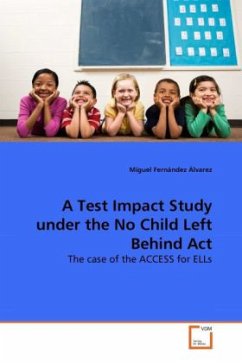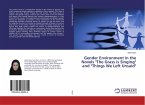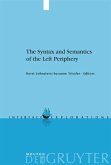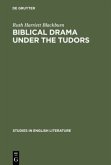The present work, which is carried out in one of the school districts in the state of Illinois, focuses on the social impact of the ACCESS for ELLs, one of the tests that is currently being used in twenty-three states to measure and report ELLs' language proficiency, and the use that is made of the scores by different people: state legislators, district administrators, school principals, and teachers. Results obtained in a teacher survey and in several interviews with stakeholders at various levels reveal that, although on a smaller scale compared to other state tests, the way in which the ACCESS scores are being used can have a strong impact on the education of ELLs. Not only student placement decisions are based on these results, but also programmatic and economic determinations are made, with the aim of meeting the objectives and avoiding schools being sanctioned by the State and Federal US Governments.
Bitte wählen Sie Ihr Anliegen aus.
Rechnungen
Retourenschein anfordern
Bestellstatus
Storno








